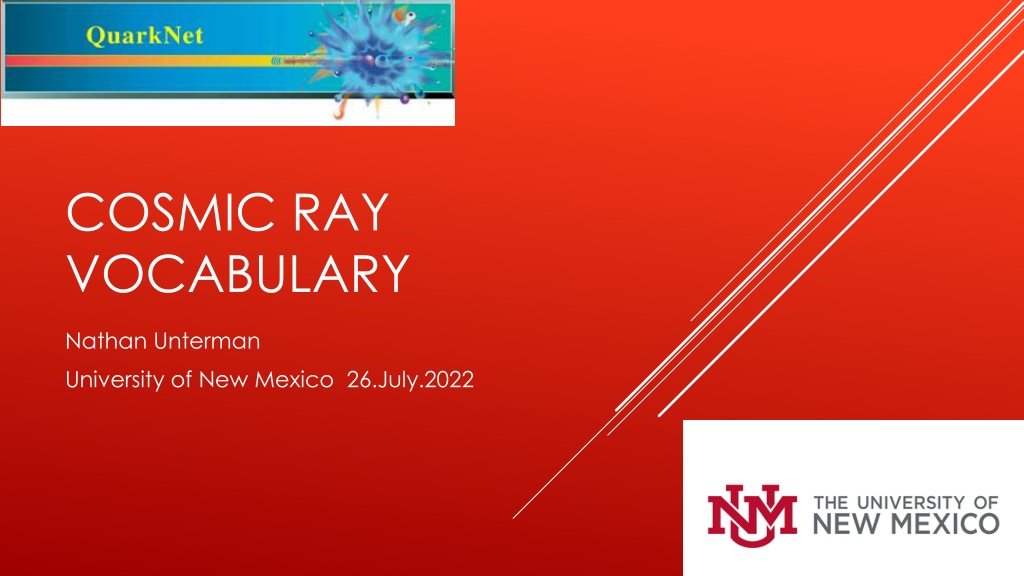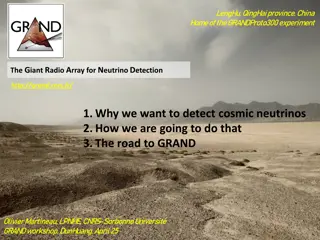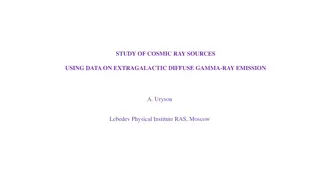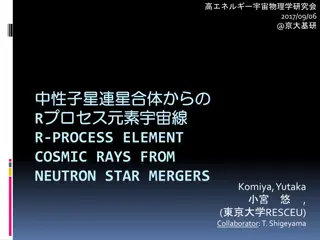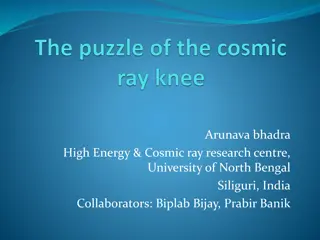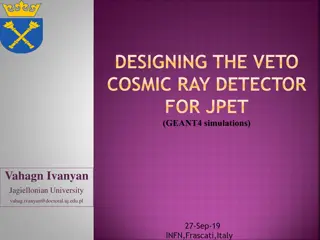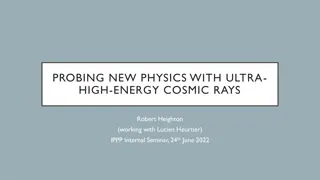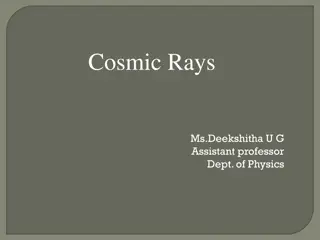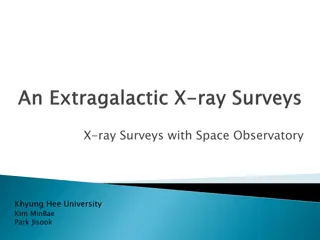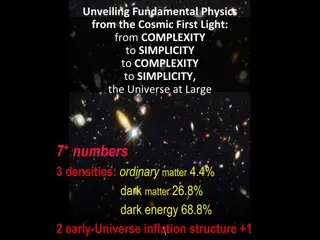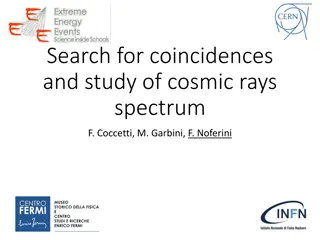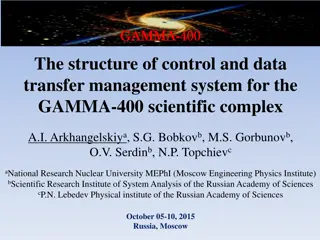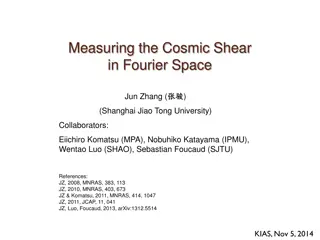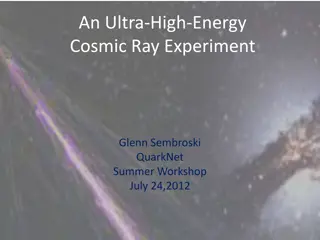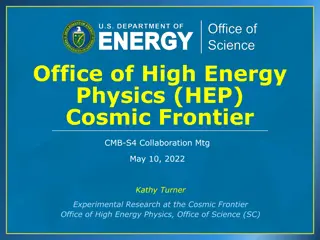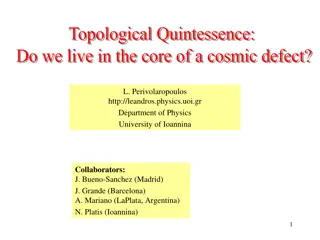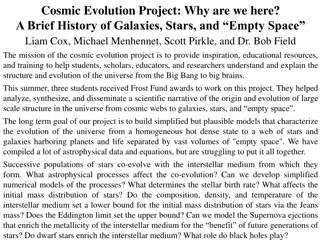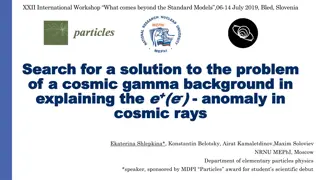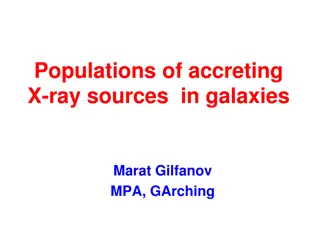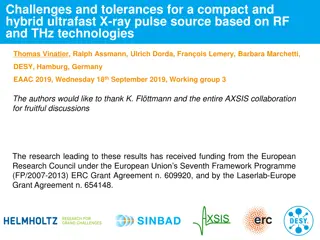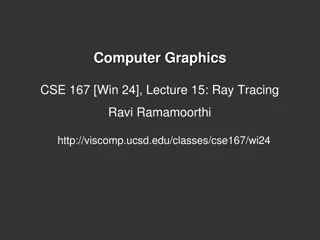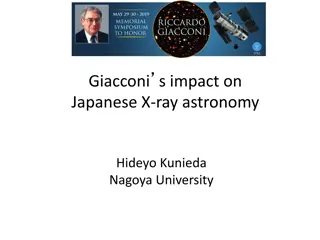Exploring Cosmic Ray Vocabulary and Physics Concepts
Delve into the world of cosmic rays and physics terminology with definitions and explanations covering topics such as flux, relativity, half-life, trigger rates, and more. Discover the significance of muons, gates, stack arrays, and nanoseconds in the study of cosmic phenomena. Explore the tools and techniques used in analyzing cosmic ray data, including time of flight measurements and angle of acceptance calculations.
Download Presentation

Please find below an Image/Link to download the presentation.
The content on the website is provided AS IS for your information and personal use only. It may not be sold, licensed, or shared on other websites without obtaining consent from the author. Download presentation by click this link. If you encounter any issues during the download, it is possible that the publisher has removed the file from their server.
E N D
Presentation Transcript
COSMIC RAY VOCABULARY Nathan Unterman University of New Mexico 26.July.2022
Question Team 1, 2 Brie and Jeff 3, 4 Tim and Sarah 5, 6, 11 Ken and Bill 7, 8 Philip and Carlos 9, 10, 14 Connie and Turtle 12, 13 Lexi and Tom
Flux describes the number of muons that pass or travel through a surface (area) per unit time. FLUX
Mass Time Length RELATIVITY
Half-life is the time required for a quantity to reduce to half of its initial value. The term is commonly used in nuclear physics to describe how quickly unstable atoms undergo radioactive decay or how long stable atoms survive. Lifetime is the amount of time a particle takes to decay in the process of one unstable subatomic particle transforming into multiple other particles. HALF-LIFE VERSUS LIFETIME
Recording an event when at least two counters have indicated a hit within a gate. Importance is to reduce the number of stray events. Trigger rate is the rate of events. COINCIDENCE AND TRIGGER
Stack Array
A nanosecond (ns or nsec) is one billionth (10-9) of a second. 0.000000001 seconds.
Time of Flight tool Need geometry Plot on graph paper. Time of flight can be used for counts, angle of acceptance, . . . MUON SPEED
How is the detector doing Individual rates Trigger rates Satellites Voltage Temperature Pressure BLESSING DATA
CONTACT Nathan Unterman nunterman@gmail.com 773 758-0464
